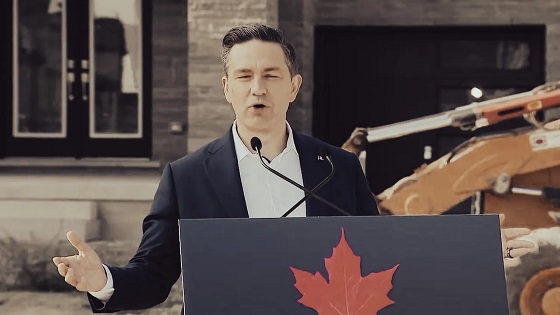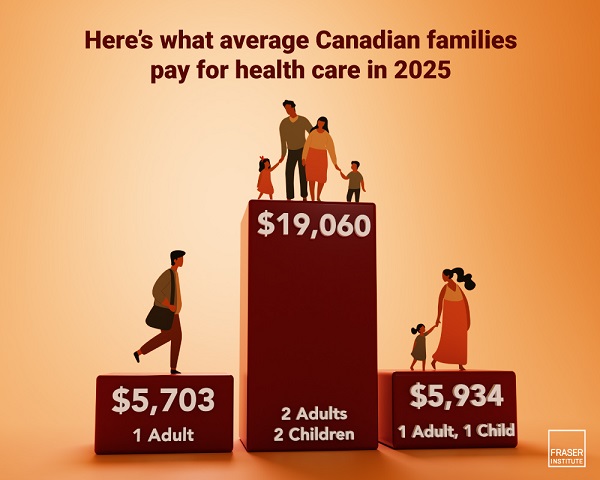Alberta
Province adding 22 ambulance crews including 1 in Red Deer
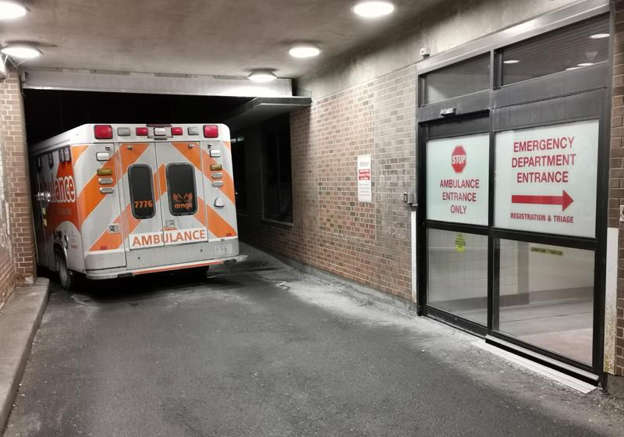
Adding new EMS supports to improve response times
Record investments will build a stronger, more flexible and innovative system for emergency medical services (EMS) with better access to care and shorter wait times.
Alberta’s government promised that help is on the way for Albertans and the province’s health system. By hiring more staff, putting more ambulances on the road and strengthening mental health supports for front-line workers, Alberta’s government is delivering on that promise.
“We are adding new ambulances and front-line staff and investing in solutions now and into the future to make sure ambulances arrive as fast as possible when Albertans call 911 for a medical emergency.”
The funding boost also supports implementing Health Care Action Plan priorities and recommendations made by the Alberta EMS Provincial Advisory Committee to improve EMS response and the work culture for EMS staff.
Alberta has the best front-line health care workers in the world, and Budget 2023 will put the right supports in place to ensure Albertans get the care they need, when and where they need it.
“Budget 2023 delivers the needed support to the front line and adds more resources to implement the Alberta EMS Provincial Advisory Committee recommendations. The additional funding will help ease worker fatigue and provide more mental health supports to improve the work environment for all EMS staff.”
Adding EMS staff and more ambulances
To improve EMS response time, Budget 2023 invests in adding staff and boosting the number of ambulances on the road. The funding increase will add EMS crews to staff 10 more ambulances in Edmonton, 10 in Calgary, one in Lethbridge and one in Red Deer during peak hours this year.
As part of the ongoing work to improve the central dispatch system and implement the EMS advisory committee’s recommendations, Alberta’s government will provide more than $1.5 million to hire and train additional staff and conduct a review of EMS available resources and how they are used in communities.
Supporting EMS workforce
Front-line staff and community partners asked for more supports to create better work environments, as reflected in the provincial advisory committee’s recommendations. Budget 2023 delivers funding to improve scheduling practices to allow for more breaks, more flexibility in the length of shifts and opportunities to take time off, in addition to providing for more training and development opportunities.
Nearly $1 million will go towards boosting mental health supports for EMS staff across the province. A $3-million investment will address paramedic fatigue in rural communities by adjusting work hours and shift schedules as part of the AHS EMS hours of work initiative.
“This funding increase enables aggressive action on our priority of improving emergency response times. We will hire more staff, increase hours of ambulance capacity, expand partnerships with other community supports and deliver innovative projects. This is about getting Albertans the care they need, where and when they need it.”
EMS-811 shared response, inter-facility transfers and treat and refer
Alberta’s Health Care Action Plan is helping to speed up EMS response times and free up highly trained paramedics from non-emergency calls and transfers. Additional funding will go towards the EMS-811 Shared Response program that transfers calls from Albertans with non-urgent conditions to registered nurses with Health Link.
All these actions will reduce EMS response time by empowering paramedics to focus efforts on urgent calls and diverting them away from situations when their level of care is not medically required.
Medical first response supports in rural communities
Medical first responders provide life-saving care in rural and remote communities until an ambulance arrives. Budget 2023 invests in supporting medical first response and implementing the EMS provincial advisory committee’s recommendations to add capacity and provide additional training and equipment.
Budget 2023 secures Alberta’s future by transforming the health care system to meet people’s needs, supporting Albertans with the high cost of living, keeping our communities safe and driving the economy with more jobs, quality education and continued diversification.
Quick facts
In 2023-24, Alberta’s government is providing $723 million in operating funds for EMS, an increase of $138 million to support EMS priority actions, including:
- $47 million for additional EMS capacity to put more ambulances on the road, hire additional paramedics and emergency communications officers, and create dedicated inter-facility transfer capacity in Edmonton, Calgary and Red Deer.
- $24 million for recruitment and workforce initiatives and supports, including training programs and mental health supports for front-line staff.
- $24 million to continue initiatives that were implemented last year such as the 19 additional ambulances in Calgary and Edmonton, and enhanced scheduling changes made in high-priority stations around the province to reduce paramedic fatigue.
- $21 million for ground ambulance contract changes, increased mileage and fuel, including for air ambulance/air ambulance supports and other operational pressures from the increase in the number of events.
- $7 million to support strategies to enhance the EMS system, such as enhancements to the medical first response program, public education and response, and a review of the ground ambulance resource allocation policies and capacity.
- Almost $7 million to support other initiatives such as clinical improvement initiatives like expanding the vital health response program to the south zone, which will make it possible for paramedics to provide life-saving heart medication in the event of a heart attack, and expanding the mobile integrated heart program to support community paramedics across the province.
- $3 million for the EMS-811 Shared Response program.
- $3 million for other initiatives related to implementing recommendations.
- $2 million for a project related to air ambulances.
- Budget 2023 provides $196 million in new EMS funding over three years to hire more staff, put more ambulances on the road and implement recommendations made by the EMS advisory committee and the EMS Dispatch Review Report.
- In addition, $15 million over three years will fund a new capital program to purchase more ambulances and related equipment.
Alberta
Alberta updates TIER system: Businesses can direct compliance payments to on-site technologies
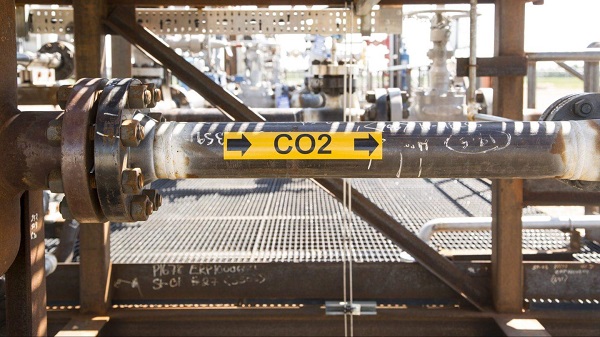
Modernizing TIER to secure tomorrow |
Alberta is seeking to update the Technology Innovation and Emissions Reduction (TIER) system to drive investment at large industrial facilities, helping companies stay competitive and protecting jobs.
This fall, Alberta’s government will introduce updates to the TIER system that would empower Alberta industries to invest in on-site emissions reduction technology that works for their specific businesses. Making Alberta’s highly successful TIER system even more effective and flexible will make industries more globally competitive while maintaining Alberta’s leadership in emissions reductions.
“TIER has always been about Alberta leading the way – proving to the world that it’s possible to increase energy production, grow the economy and lower emissions at the same time. These amendments build on that success by giving industry the certainty and flexibility they need to invest right here at home. We know this work is not finished. We will continue to press the federal government to match Alberta’s leadership with realistic policies and timelines so that together we can keep building an economy that is strong and ready for the future.”
“We are committed to ensuring our industry remains competitive and can once again bring in the capital investment needed to deliver safe, affordable and reliable energy to Canadians and the rest of the world. Enabling them to reinvest their dollars into their own facilities will be good for the environment while growing our economy and creating jobs.”
“TIER has played a critical role in helping Alberta energy be the most responsibly produced energy in the world. These changes will further allow our major energy companies to increase production and finance new world-leading emission reduction efforts consistent with Alberta’s Emissions Reduction and Energy Development Plan.”
Proposed updates to the TIER system include:
- Recognizing on-site emissions reduction investments as a new way for industry to comply with the TIER system in addition to the current options available, which include paying into the TIER fund or buying credits. This would reward companies for investing directly in emissions reduction technology that encourages innovation, supports local jobs and reduces emissions.
- Allowing smaller facilities that currently participate in the TIER system to leave or opt out for 2025 to reduce costs and red tape. Smaller facilities below the regulatory emissions threshold can face disproportionate compliance costs under the TIER system, which is mainly designed for large facilities. This change would help smaller industries save money and redirect resources into emissions reduction investments or other operational improvements for more cost savings. It offers flexibility, especially for small manufacturers and rural operations, which protects jobs across Alberta.
These changes will position Alberta, once again, as a world leader ready to meet the challenges and realities of shifting global markets, increased competition and trade uncertainty.
“We are pleased to see the Government of Alberta is taking steps to improve competitiveness of climate policy. Today’s announcement recognizes industry concerns around competitiveness and signals that the province is moving forward to support emissions reduction in a way that helps companies reduce emissions, compete for investment, and create jobs for Albertans. EPAC believes provinces are best positioned to lead on climate policy, and we look forward to continued work with Alberta.”
“Pathways Alliance appreciates the Government of Alberta’s efforts to support the oil sands industry and protect jobs. Direct investment through the TIER system is expected to encourage continued investment in emission reduction technologies, and advance innovative infrastructure. The oil sands industry looks forward to ongoing work with governments to strengthen global competitiveness and attract investment.”
Alberta’s economy is growing and emissions are declining thanks to the province’s common-sense approach. Alberta’s government will continue to work with industry to protect jobs, strengthen competitiveness and maintain Alberta’s position as the destination of choice for global investment.
Quick facts
- Alberta’s TIER system was established in 2007 and was the first of its kind in North America.
- Currently the TIER system includes about 60 per cent of the province’s total emissions, helping Alberta’s industrial facilities find innovative ways to reduce emissions and invest in technology to stay competitive, save money and create jobs.
- The TIER Regulation requires any facility that emits 100,000 tonnes or more of emissions in a year to meet annual emissions reductions using either a facility-specific or a sector benchmark approach.
- Under the current system, regulated facilities can comply using credits (carbon offsets, emission performance credits or sequestration tonnes) or pay into the TIER fund at $95 per tonne of emissions.
- Sectors regulated under the TIER system include oil and gas, oil sands mining, electricity, forestry, chemicals, fertilizers, minerals, food processing and waste.
- Since 2019, Alberta has invested $1.6 billion from the TIER fund into geothermal, hydrogen, energy storage, methane reduction, carbon capture and other technology projects, reducing approximately 70 million tonnes of emissions by 2030 and supporting about 21,000 jobs across the province.
Related information
Alberta
Alberta Education negotiations update: Minister Horner

President of Treasury Board and Minister of Finance Nate Horner issued the following statement about the ongoing negotiations with TEBA and the ATA:
“After announcing its intention to strike last week, the ATA provided its members with a document titled ‘Talking Points’ for teachers to use when speaking to parents and students about the current bargaining situation.
“The document falsely claims that the Teachers’ Employer Bargaining Association (TEBA) does not have the mandate to ‘negotiate on important issues such as class complexity, class size, support for students.’
“There are also other statements in the document that are misleading and confusing for parents, teachers and most importantly our kids, who are explicitly targeted by these communications.
“To be clear, the only item outstanding between the ATA and TEBA for a new contract is the union’s additional salary demands.
“TEBA’s most recent offer to the ATA included a guarantee to hire 3,000 more teachers over the next three years at a cost of about three-quarters of a billion dollars. This is what the ATA asked for in its previous offer and government’s response met that request. The parties are no longer disputing negotiations on that point.
“The current offer provides a salary increase of at least 12 per cent over four years with more than 95 per cent of teachers receiving more through a market adjustment, and would result in the best deal for teachers in all of Western Canada.
“The information in the ATA document is inaccurate. It intentionally misinforms the public, parents and students. TEBA has been left with no choice but to launch a legal challenge. The Alberta Labour Relations Board received our complaint today, asking the ATA and its president Jason Schilling to immediately retract their false claims and to stop using Alberta’s students and families for leverage in a bargaining dispute.
“The ATA’s leadership and communications strategy targeting families and children with false and misleading claims raises serious ethical concerns. The government must now correct the false narrative the ATA has created.
“I look forward to a speedy resolution of this complaint with the Labour Relations Board. When we have our resolution, we will consider next steps.”
-
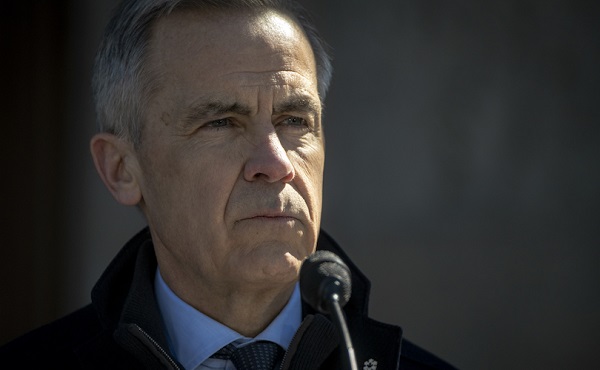
 Business2 days ago
Business2 days agoCarney’s Ethics Test: Opposition MP’s To Challenge Prime Minister’s Financial Ties to China
-

 Business1 day ago
Business1 day agoAttrition doesn’t go far enough, taxpayers need real cuts
-

 Business1 day ago
Business1 day agoCarney government’s housing GST rebate doesn’t go far enough
-

 Media2 days ago
Media2 days agoCancel culture wins ultimate victory as murder of Charlie Kirk ghoulishly celebrated by radical Left, media included
-

 Alberta1 day ago
Alberta1 day agoBreak the Fences, Keep the Frontier
-

 Health15 hours ago
Health15 hours agoMAiD should not be a response to depression
-

 Business16 hours ago
Business16 hours agoRed tape is killing Canadian housing affordability
-

 Opinion1 day ago
Opinion1 day agoRFK Jr. Reveals Unforgettable Details About Charlie Kirk in Emotional Tribute

